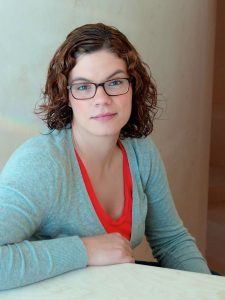
1 How can we find out how the brain works?
We will need to continue to study the brain at multiple scales, both at the neuronal level, at the macro level (via brain imaging), and at the behavioral level. And we need to continue to bring these worlds together. We also need to start pushing brain imaging experiments in humans out into the real world. We can learn something about human language understanding by watching people read single words or single sentences, but we will miss out on the higher level comprehension areas that are required for larger scale understanding and reasoning. Similarly, viewing pictures or watching videos tells us something about vision, but interacting with objects in the real world will likely tell us more. There is tremendous value in tightly controlled experimental paradigms, but we also need some people doing the hard work that gets at the more holistic aspects of brain information processing.
2 What will your talk at CCN 2017 be about?
My tutorial talk is broadly about AI, but I will give several examples of how we have programmed computers to abstractly represent the world, and how that abstract representation relates to people’s understanding of the world (measured with brain imaging).
3 How can cognitive science, computational neuroscience, and artificial intelligence best work together?
By training people to straddle these areas. I was incredibly lucky to get my training both in machine learning and neuroscience, and it has allowed me to live in (and contribute to) both areas. I hope my students will go on to do the same thing.
4 What current developments are you most excited about?
I’m very excited to see how the hidden representations learned by artificial neural networks are being related to brain images for people viewing the same stimuli. This is incredibly exciting, and I think hints that the two areas are soon to collide.
5 What do you hope to learn at CCN 2017?
You’ve put together an amazing program and I’m excited to hear from Rebecca Saxe and Yael Niv. The panel discussions have great groups of people and could be very interesting!
